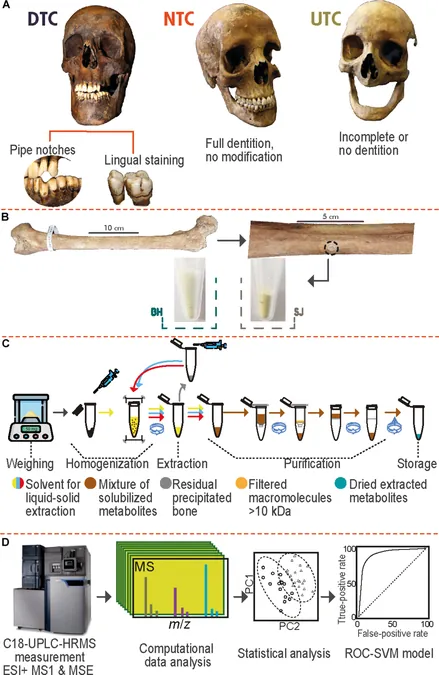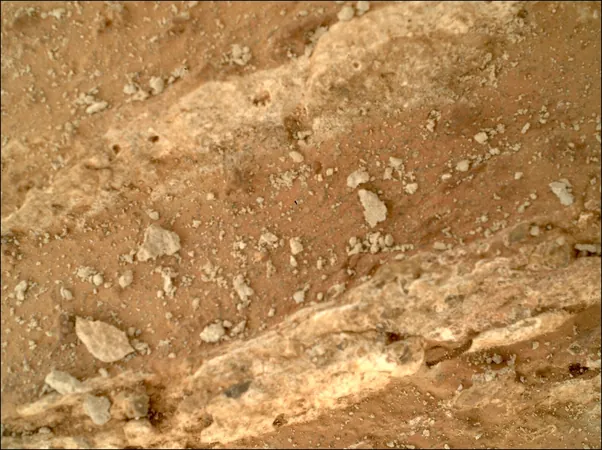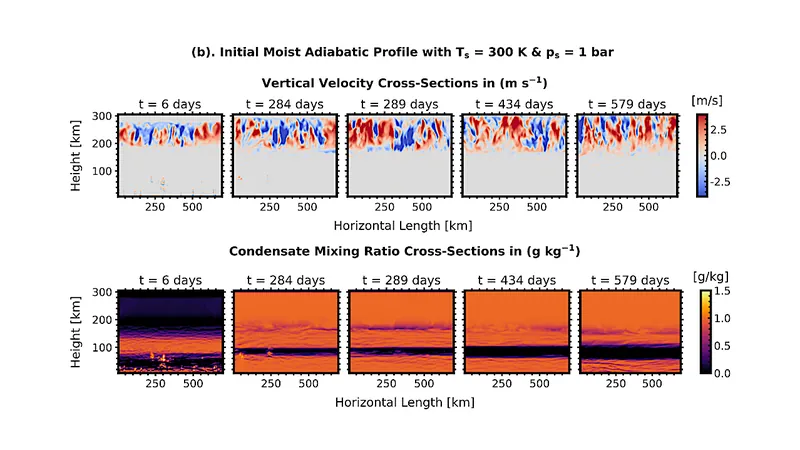
Groundbreaking Discovery: Archaeologists Uncover Secrets of 18th-Century Smokers Through Bone Analysis!
2024-10-07
Author: Siti
Groundbreaking Discovery: Archaeologists Uncover Secrets of 18th-Century Smokers Through Bone Analysis!
A team of archaeologists and historians from the University of Leicester has made an incredible breakthrough in identifying smokers from the 18th century by analyzing metabolites in ancient bones. This innovative study, published in the prestigious journal Science Advances, introduces a revolutionary technique for detecting tobacco use in individuals who lived hundreds of years ago.
Historically, identifying smokers in archaeological remains often relied on visible markers, such as the distinctive stains left on teeth by clay pipes or discolored enamel. However, not all smokers left behind these clues, prompting researchers to seek alternative methods to unveil the smoking habits of the past. The researchers turned to metabolites—chemical compounds produced during metabolism—as a potential key to understanding the lifestyles of ancient populations.
During their study, the team analyzed bones from known smokers of the 1700s and compared their chemical profiles to those of individuals who lived before tobacco was introduced into England in the 1500s. Remarkably, they identified dozens of metabolites likely linked to tobacco use, revealing the extent of smoking culture in 18th-century England.
The archaeological investigation focused on 323 skeletons excavated from cemeteries in North Lincolnshire and London. Results showed that smoking was far more widespread during this period than previously believed, with approximately half of the individuals examined having smoked tobacco. This notable finding challenges the long-held assumption that smoking was primarily a male-dominated activity, as the study found both men and women across various societal classes engaged in the habit.
This research represents one of the pioneering applications of metabolic analysis to skeletal samples, opening new avenues for understanding the dietary and lifestyle choices of our ancestors. Investigators hope that their findings will pave the way for further studies, offering deeper insights into the health and social practices of historical populations.
With the science of archaeology evolving rapidly, this study not only shines a light on 18th-century smoking culture but also exemplifies how innovative techniques can rewrite what we know about human history. Stay tuned as researchers continue to unravel the mysteries of the past!




 Brasil (PT)
Brasil (PT)
 Canada (EN)
Canada (EN)
 Chile (ES)
Chile (ES)
 España (ES)
España (ES)
 France (FR)
France (FR)
 Hong Kong (EN)
Hong Kong (EN)
 Italia (IT)
Italia (IT)
 日本 (JA)
日本 (JA)
 Magyarország (HU)
Magyarország (HU)
 Norge (NO)
Norge (NO)
 Polska (PL)
Polska (PL)
 Schweiz (DE)
Schweiz (DE)
 Singapore (EN)
Singapore (EN)
 Sverige (SV)
Sverige (SV)
 Suomi (FI)
Suomi (FI)
 Türkiye (TR)
Türkiye (TR)